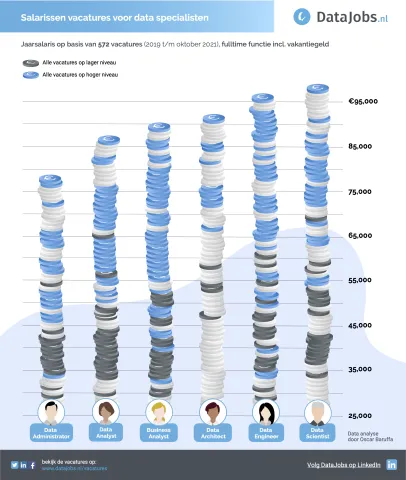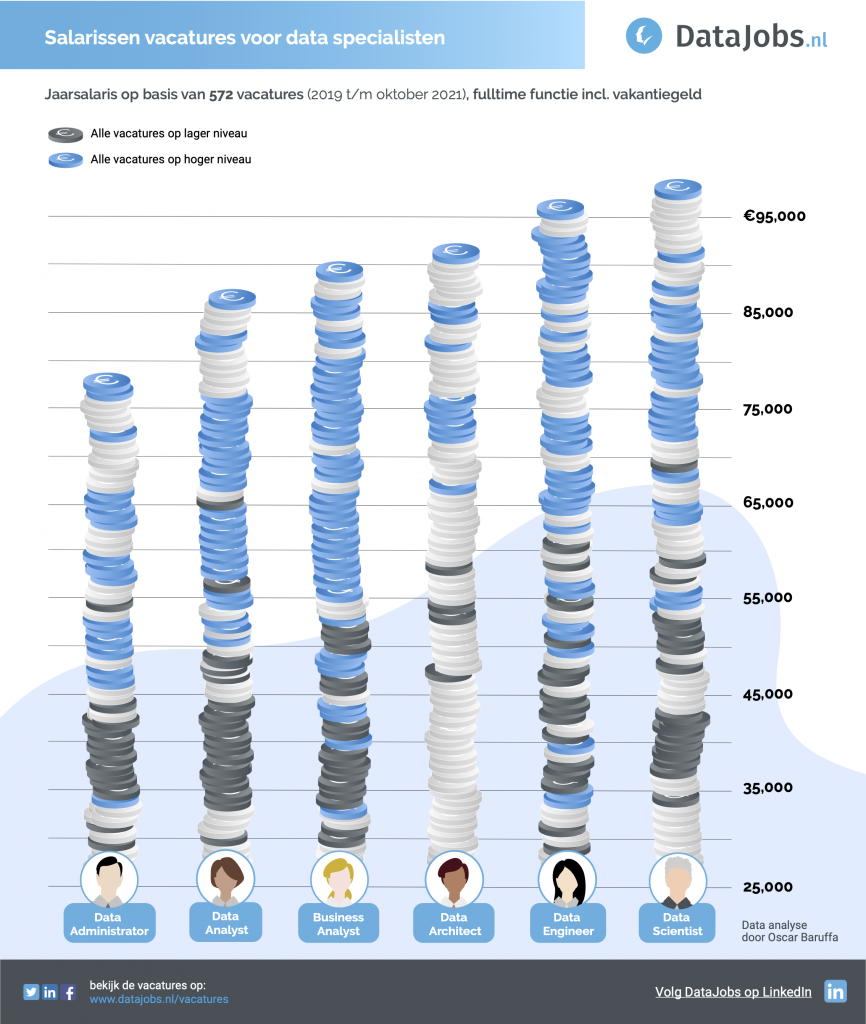
And what about a Data Architect? Or a Business Analyst?
At DataJobs, we’ve been guiding employers, employees, applicants, and other interested parties for years in the world of data jobs and data specialists.
Fortunately, around 80% of job listings on DataJobs now include a salary indication. What’s more, we have the advantage that there's no 'pollution' from recruitment agency listings (which may include inaccurate salary estimates).
we unleashed our Data Scientist on the data from about 1,200 job listings
To properly answer the question we opened this blog with, we’ve chosen to rely on our own data. So we unleashed our Data Scientist on the data from about 1,200 job listings from the past two years. His analysis has been visualized in the infographic ‘salaries in data specialist vacancies’ shown at the end of this article. Of course, you are free to download it or share it with your network.
Salaries of Data Specialists
In the infographic, we show salary ranges per job category as distilled from all those job postings. We distinguish between lower-level vacancies (grey coins) and higher-level vacancies (blue coins).
For example: a junior/entry-level Data Analyst earns an annual salary of around 35K on average, while a highly experienced Data Analyst can earn up to 85K. For roles like Data Scientist and especially Data Architect, the terms junior or entry-level don’t really apply — the distinction lies more between less experienced and highly experienced professionals.
And to answer the question in the title, ‘what does a Data Scientist really earn’: a Data Scientist earns between 35K and 100K per year.
What Stands Out to Us?
First, that the role of Data Engineer shows an extremely broad salary range. There are starting Data Engineers who earn 30K, and experienced ones nearing 100K. That’s unusual for such a purely technical role.
It’s also striking how much overlap there is between the salaries of Data Engineers and Data Scientists. That may have to do with the fact that many vacancies titled 'Data Scientist' are actually for 'Data Engineer' roles (or 'Data Analyst' roles — as we’ve discussed before).
Finally, we noticed that the Data Analyst and Business Analyst are fairly close in salary. But the latter role seems to have a bit more room to grow at the higher end of the salary range.
What stands out to you in the infographic? And what else would you like us to analyze? Let us know!
Raymond te Veldhuis
Also follow our LinkedIn network for data specialists!

Download the PDF version here.

